- Home
- Seanan McGuire
Broken Paper Hearts
Broken Paper Hearts Read online
Broken Paper Hearts
by
Seanan McGuire
Buckley Township, Michigan, 1945
The last of the daylight was fading from the fields when Frances Healy walked into the woods on the evening of February 13th, 1945. The wind had stopped blowing for the first time in days, and the snow that had covered the ground since late November was beginning to melt, revealing patches of dead brown grass. Fran was alone when she left, walking through the wide field behind the Healy house and into the shadow of the trees. She walked easily past the border of the woods, unconcerned by the dangers around her; she’d come this way a thousand times before, and never found a danger she couldn’t face.
She was a lovely woman, and she moved with the casual ease of one who had never felt the need to question her own loveliness. Her hair was a true gold that her daughter had been lucky enough to inherit, her eyes were deep blue, and her face held the sort of quiet prettiness that would be remembered long after more flashy beauties had faded away. Years with the circus had given her the sort of figure most women would kill for, and years in the field had helped her preserve it through two childbirths and a great many injuries.
Two pistols were holstered at her waist—the last remaining companions from her performing days—and a shotgun rested lightly against her shoulder. She was not afraid. She did not look back toward the home she shared with her six year old daughter, her husband, and his parents. She just kept walking.
Frances Healy never looked back.
Midnight came and went without any sign of Fran. Jonathan closed the book he’d been reading, dimmed the parlor lights, and went upstairs to bed alone and unconcerned. He knew his wife well enough to have faith in her ability to care for herself in the woods, and had equal faith in her temper if he came looking for her and managed to blow an ambush she’d spent hours setting up.
He slept deeply through the night. All his dreams were pleasant ones.
The first flickers of concern didn’t begin until he woke to discover he was still alone. Fran never got up before he did—her fondness for lying in bed long past what his mother considered a “civilized hour” was the source of a large amount of good-natured friction in the household. He sat up and scanned the room, wiping the last traces of sleep from his eyes. Her guns, which she would clean and put away before she allowed her own wounds to be treated—“the difference between a person and a tool is that it’s a person’s duty to see their tools are cared for,” she’d say—weren’t there. The spot where they belonged was as empty as her side of the bed.
Jonathan Healy stared at the place where his wife’s guns should have been and felt the fear beginning to uncurl in his gut.
Downstairs in the kitchen, Enid fried bacon while Alice, all pigtails and excitement, chattered to her grandparents between hastily chewed bites of breakfast. The topic of discussion was the impending school Valentine exchange, where she and her classmates would trade construction paper hearts, stuffing them into brown bag “mailboxes” before gorging on cupcakes and chalky sugar candy. This was, without a doubt, the event of the season in Alice’s world, especially since Enid's contribution of three dozen pink-frosted cupcakes had temporarily elevated Alice herself to the top of the social pecking order.
“That does sound exciting,” agreed Alexander, amusement written broadly across his face. “I’m sure Saint Valentine would be honored.”
Alice frowned thoughtfully. “Should I save him a cupcake?”
“Wherever pink cupcakes are eaten in His name, He shares in the sugared delight,” Alexander said. Seeing Alice’s blank expression, he laughed, and said, “Just eat an extra cupcake on his behalf.”
“But first, eat your eggs,” said Enid, putting the plate of bacon on the table. Crossing to the kitchen door, she cupped her hands around her mouth and shouted, “Johnny! Fran! Breakfast’s on the table!”
“For God’s sake, Enid, let them sleep. Fran was still out when I turned in last night, and that was near two o’clock.” Alexander smeared raspberry jam onto a slice of toast and passed it to Alice. She bit into it with gusto before mumbling a question.
“Chew, then swallow, then talk,” advised Enid.
Alice swallowed before asking, “Did Mama go hunting?” The anxiety in her voice was blatant enough to be unusual. Fran had been going hunting since Alice was born—had been in the field when her water broke, in point of fact—and had never been seriously hurt. For the most part, Alice had seemed to regard her mother’s hunting trips as being as natural as Enid’s baking or her father’s fondness for books…until now.
Enid and Alexander exchanged a look. “Well, yes, cupcake, I do believe she did,” said Alexander, carefully. “Are you worried about that?”
“She didn’t shoot Saint Val’n’tine, did she?” Alice looked up at her grandparents, eyes wide and shiny with the threat of tears.
Alexander bit back a laugh. It was a reasonable question, considering that nasty Santa Claus business around Christmastime. “No, Alice, Frannie didn't shoot Saint Valentine. I promise.”
“So I still get to have cupcakes?”
“You most definitely still get to have cupcakes, after you have eaten your eggs.”
Alice grinned. “Yay,” she said, and finally started working on her eggs, alternating them with bites of toast.
Footsteps thudded on the stairs. Enid smiled as she turned toward the door, already starting to cheerfully scold, “Now, you know you shouldn’t set such a bad…Johnny?” Her smiled died, replaced by confusion. Jonathan entered the room alone, hair still uncombed, dressed for hunting, not for work.
“Johnny, what’s wrong?” she asked.
“Happy Val’n’tine’s Day!” caroled Alice.
“Good morning, sweetheart. Eat your eggs.” Jonathan’s words were distracted; he was already turning to Alexander as he spoke. “I won’t be coming to work today. Can you see Alice off to school?” Not waiting for a reply, he looked to Enid. “Will you—”
“Let me change,” said Enid, and hurried out of the room.
Alice looked between her father and grandfather, bemused. Alexander stood, gripping the back of her chair and tugging her away from the table. “That’s enough eggs, I think. Up you get now, Ally. Go wash your face and get your things, and I’ll drive you to school.”
“All right, Grandpa,” Alice agreed dutifully, and followed the path her grandmother had taken out of the room.
Alexander listened to Alice’s footsteps moving up the stairs as he studied his son, taking note of Jonathan’s disheveled appearance and unfocused eyes. Only when her steps had faded into silence did he ask, calmly, “Just how worried are you, John?”
“She left right after dinner last night. She didn’t say she’d be staying out, and she didn’t take any of the camping gear.”
“I see. That would’ve been, what, seven o’clock?”
“Six.”
“Ah.” Alexander glanced to the clock. “That’s thirteen hours. I’d be fair concerned in your position.”
Jonathan nodded, swallowing hard. “Yes. I am.”
“Just be careful.” Alexander put his hand on Jonathan’s shoulder, expression grave. “You let your mother take the point on this one; she’s a better tracker than you are. I’ll make sure Alice gets home safely.”
“Thank you.”
Alexander squeezed lightly before letting his hand fall back to his side. “Don’t worry about it. That’s what family is for.”
Alexander loaded Alice into the truck and was gone by seven-fifteen, rattling away down the drive toward the road that would take them into town. Enid and Jonathan stood on the porch and watched them go, allowing the forced cheer they’d projected around Alice to fade away.
<
br /> Jonathan waited until the truck was out of view before nodding once, expression grim, and saying, “Let’s go.”
“I’m sure she’s fine,” said Enid, stepping off the porch.
Turning to offer his mother a wan smile, Jonathan said, “You don’t have to lie to me.”
Enid matched his smile with one of her own, looking just as anxious and afraid of what they might find waiting in the still half-frozen forest. “I’m not. I’m lying to myself.”
There was nothing that needed to be said after that. They walked across the fields side by side. Enid moved ahead of him when they reached the tree line, her eyes starting to scan the ground for signs of Fran’s passage. Fran was an excellent hunter, and the best shot in the family, but she’d learned the basics of her trade in the prairies and plains of the west—open country. Enid had always been able to track her, even after Fran had lived nearly a decade in Buckley. It only took Enid a moment to find the trail. She started forward again, with Jonathan moving close and fast behind her, and the wood swallowed them both.
They found Fran next to one of the wood’s countless unnamed streams. Her eyes were open wide in a look of startled indignation that was so much like her daughter’s that Enid had to turn away, as much at the shock of her daughter-in-law’s death as at the sudden realization that she would somehow have to tell Alice. Somehow, she would have to make Alice understand that this had happened, that her mother was gone, and was never coming home.
Jonathan’s expression was blank as he walked to Fran and knelt in the half-frozen moss, pressing his index and pointer fingers against her throat. It was futile to even check for a pulse—her head was twisted too far to the side, and her chest wasn’t moving—but he knelt there for a full minute, feeling her long-cooled flesh and waiting for a miracle to come.
There were no miracles. No redemptions, no salvation. Just a woman, a wife, mother, and beloved daughter, lying cast off in the moss like a child’s unwanted doll. Her guns were still holstered at her hips. She hadn’t even had time to draw them before she died, and nothing had come to claim the body. They’d have to check it for eggs and parasites before they could take her to the funeral home, and Enid’s heart ached from the very thought.
“She was hit from the left,” Jonathan said, in a calm, emotionless voice. “Whatever it was, it hit her hard enough to break her neck.” He turned his wife’s face toward the sky, closing her eyelids with a smooth motion of his hand. “There’s a greenish cast to her skin, and she didn’t have time to bruise. It was most likely a river hag, or something else from that family.”
“Jonathan—”
“She was never good at listening for changes in the sound of the water,” Jonathan continued, in that same droning tone. “River hags don’t make the frickens stop singing, and she depended on them too much for warning. Really, this shouldn’t be a surprise.”
“Johnny.” Enid moved to put her hands on his shoulders, hot tears running down her cheeks. She didn’t bother to wipe them away. She knew there would just be more. “Come on. We have to take her home now.”
“She never learned to be careful.” His voice broke on the final word, and then he was gathering Fran into his arms, not noticing the stiffness of her body, or the moss and dirty snow clinging to her back and sides. Burying his face against her hair, he started to sob. Enid dropped to her knees, putting her arms around them both, and cried with him. Cried for the living, and for the dead…but most of all, she cried for Frances Healy, who walked into the woods and never once looked back.
It took them both to carry Fran out of the woods, supporting her weight between them as they watched the trees for signs of motion. It was daylight, and the few frickens that were awake sang steadily as they walked, signifying clear passage. It was before noon when they emerged into the open. Still working together, they carried Fran across the fields, taking her home for the final time.
Enid stepped away when they reached the house, letting Jonathan carry Fran up the porch steps alone. He carried her like a bridegroom bringing home a bride, and he never said a word. He’d carried her through that doorway twice before, once when he brought her inside after their wedding, and again only a few weeks later, when she went into labor with their little boy. She’d been laughing and swearing both those times, so alive that it hurt Enid’s heart to watch him carrying her now, dangling limply, all her laughter done for good.
He carried her up the stairs, and Enid closed and locked the front door before going into the kitchen and staring at the phone. She could call Alexander; if she did, he’d leave the library, fetch Alice from school, and be home almost before she put down the receiver. But if she did that, the whole town would know that Fran was gone. Those operators were nosy biddies, and they couldn’t keep a secret as exciting as a death. Alice would miss her cupcakes, and the house would be flooded with well-wishers and casseroles before they’d done what needed to be done. Before they were ready.
Giving the phone a last, regretful look, Enid went to put the kettle on, and waited.
“Mama Mama Mama!” Alice shrieked, launching herself through the front door like a mother-seeking missile. She had two new scrapes joining the collection adorning her knees, a bag full of construction paper hearts clutched in one hand, and pink sugar frosting in her hair. “Happy Val’n’tine’s Day! I made you a Val’n’tine!”
She stopped in the front hallway, her joyful smile turning into a puzzled frown. “Mama?” Fran was always there on the days when her grandfather drove her to and from school, waiting to meet her and hear about her day. But the hall was empty and silent. No laughing, bright-eyed mother to be seen. Not even the usual contingent of mice.
Bemused, Alice turned back to the door, where her grandfather was making his own more sedate way up the porch steps. “Grandpa, where's Mama?”
Alexander paused, going cold. He knew how odd Fran’s absence was as well as Alice did…but unlike Alice, he knew what it was likely to mean. “Well, cupcake, I can’t really say,” he said, keeping his voice as even as he could. “Why don’t you run upstairs and change out of your school clothes, and I’ll see if I can’t find out for you.”
“All right, Grandpa,” said Alice, still sounding bewildered. She turned to climb the steps, much of her excitement fading in the face of this sudden shift in the way her world worked. If Fran didn’t walk her to school, Fran met her coming home. That was the proper order of things. In six years, that had never changed. Why was it changing now?
Alexander’s thoughts moved on similar lines as he grimly watched his granddaughter’s retreat, then turned, heading for the kitchen, where he knew his wife—assuming she hadn’t fallen prey to whatever he was growing sure had killed his daughter-in-law—would be waiting. Even knowing how unlikely it was that anything could have gotten the drop on Enid and Jonathan working together, he felt like a vise had been unfastened from his heart when he reached the kitchen door and saw Enid sitting at the table, her hands wrapped around a mug of long-cooled tea.
Licking his lips to moisten them, he asked, “Is Johnny…?”
“Upstairs with Fran,” she said, not raising her head. Her accent hadn’t been that thick for years, not since they left England and she started trying to seem less foreign to their new American neighbors. Now it was strong as it had ever been, painting every word with sorrow. “She was gone before we got there.”
“So we’re hunting tonight. The three of us.”
“You and Johnny,” Enid corrected, looking up at him. “Someone has to sit with Alice.”
“Oh, God.” Numbly, Alexander moved to take the chair beside her. She leaned into him, and he put his arm around her. “This is a right mess, Enid. A right mess indeed.”
“Yes,” she whispered, and closed her eyes. “Poor Fran…and ah, God, our poor Johnny.”
“Yes,” Alexander said.
And there was nothing more to say.
Every time Enid Healy thought she’d passed the hardest moment of her life—
passing the entrance exams for the Covenant of St. George; meeting the man she’d been assigned to train with, and realizing she was meeting her husband at the same time; leaving the Covenant, with all that it meant leaving behind; the loss of her first grandchild; finding the body of her daughter-in-law lying half-frozen in the woods—she found another moment twice as hard waiting for her in the shadows up ahead.
Every time, until this time. Because nothing in the world, she knew, would ever be harder than sitting down with her granddaughter and explaining that her mother was dead.
Jonathan couldn’t do it. Jonathan couldn’t leave Fran’s side. And Alexander needed to go to Jonathan, to start examining the body, to be sure there was nothing waiting underneath her skin, ready to break free and strike. That left Enid, and Alice, all innocence and blue-eyed bemusement.
They walked into the yard, where the last slushy patches of snow still clung, and Enid held her hand, and after a little while, Alice began to cry. Death was something she understood; it was a constant part of life on the edge of the wood. But death was something distant, something that never came to the house, never touched her or her family.
“How long will it take to make her better?” she asked.
“Alice…” Enid hesitated, and shook her head. “Alice, your mother is never going to get better. Your mother is gone.”
That was when Alice started to scream.
It was an hour before she stopped.
The coroner arrived three hours after Alice had been put to bed, her belly full of cocoa laced with brandy. Jonathan and Alexander had examined Fran’s body, confirmed that she held no further cruel surprises, and dressed her in her favorite summer gown, ready to be carried away. The coroner knew the family well; he was one of the older men in Buckley, and knew the service the Healys did the town, even if it could never be spoken openly. He signed the death certificate without hesitation, and his assistants lifted the body of Frances Healy—Frances Healy, born Frances Brown, called Fabulous Fran, the flower of Arizona, wife of Jonathan Healy, mother of Alice, best marksman in Buckley Township—and carried her down the porch steps her husband had carried her up three times, away from the house, away from the woods, and into the night. Bits of construction paper heart swirled around their feet, shredded by her only daughter’s furious hands.

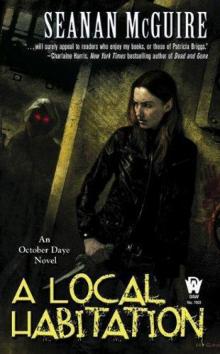 A Local Habitation
A Local Habitation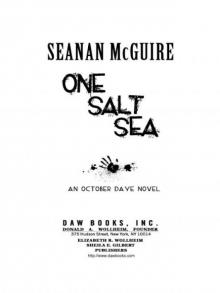 One Salt Sea
One Salt Sea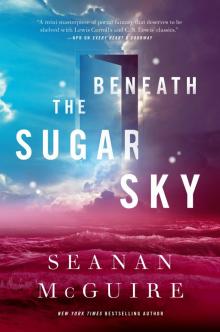 Beneath the Sugar Sky
Beneath the Sugar Sky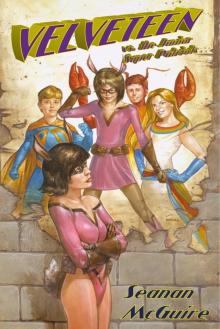 Velveteen vs. The Junior Super Patriots
Velveteen vs. The Junior Super Patriots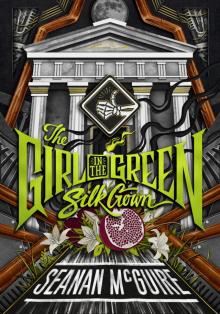 The Girl in the Green Silk Gown
The Girl in the Green Silk Gown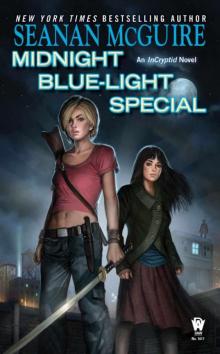 Midnight Blue-Light Special
Midnight Blue-Light Special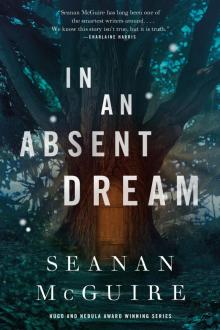 In an Absent Dream
In an Absent Dream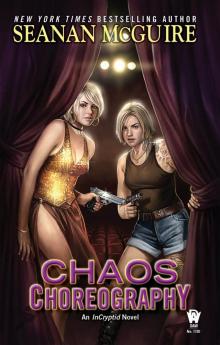 Chaos Choreography
Chaos Choreography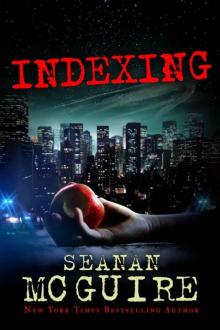 Indexing
Indexing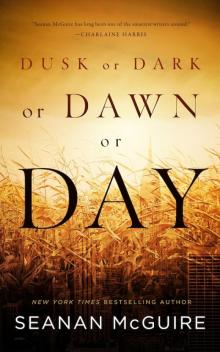 Dusk or Dark or Dawn or Day
Dusk or Dark or Dawn or Day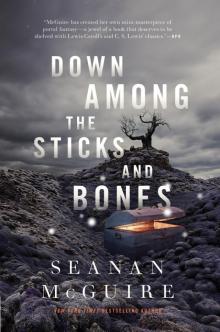 Down Among the Sticks and Bones
Down Among the Sticks and Bones The Razor's Edge
The Razor's Edge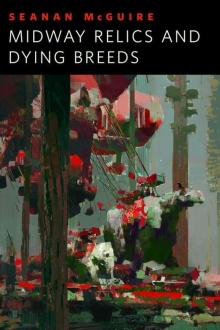 Midway Relics and Dying Breeds
Midway Relics and Dying Breeds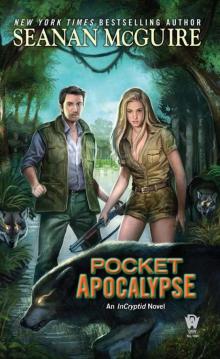 Pocket Apocalypse
Pocket Apocalypse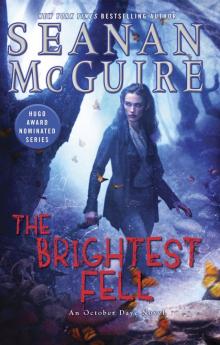 The Brightest Fell
The Brightest Fell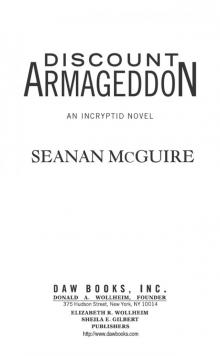 Discount Armageddon
Discount Armageddon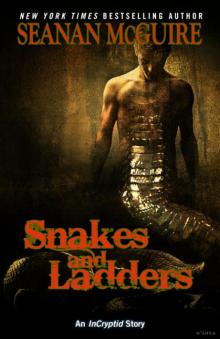 Snakes and Ladders
Snakes and Ladders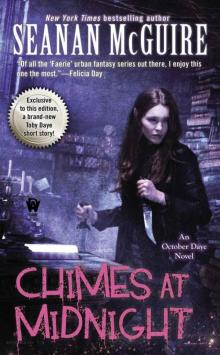 Chimes at Midnight
Chimes at Midnight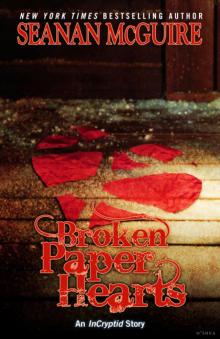 Broken Paper Hearts
Broken Paper Hearts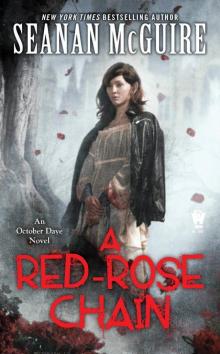 A Red-Rose Chain
A Red-Rose Chain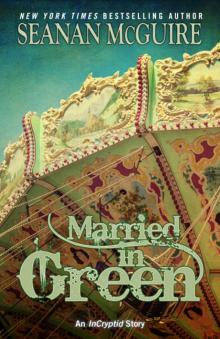 Married in Green
Married in Green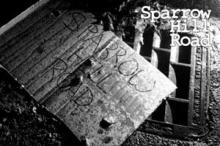 Sparrow Hill Road 2010 By Seanan
Sparrow Hill Road 2010 By Seanan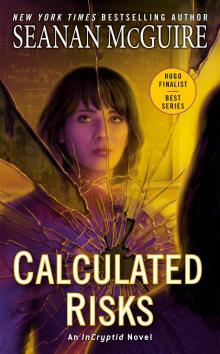 Calculated Risks
Calculated Risks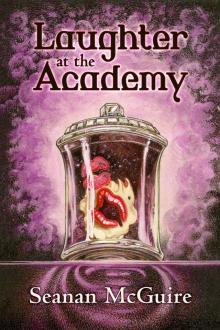 Laughter at the Academy
Laughter at the Academy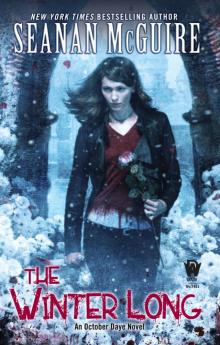 The Winter Long
The Winter Long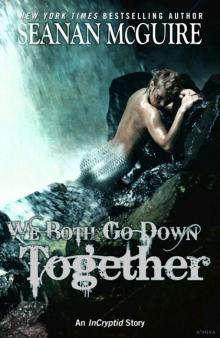 We Both Go Down Together
We Both Go Down Together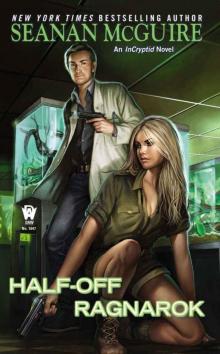 Half-Off Ragnarok
Half-Off Ragnarok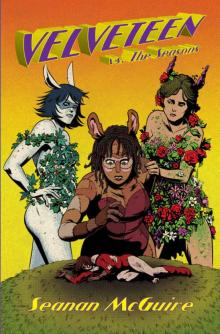 Velveteen vs. The Seasons
Velveteen vs. The Seasons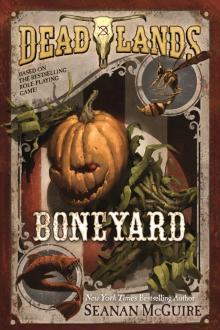 Boneyard
Boneyard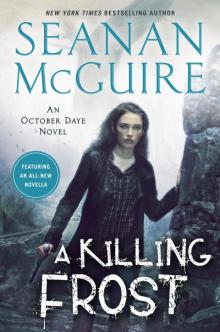 A Killing Frost
A Killing Frost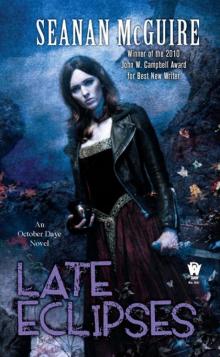 Late Eclipses
Late Eclipses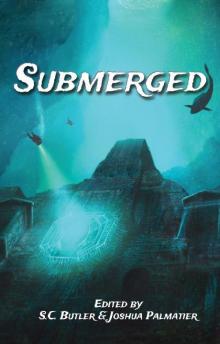 Submerged
Submerged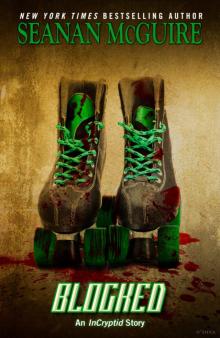 Blocked
Blocked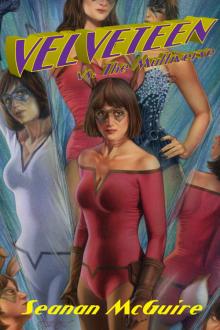 Velveteen vs. The Multiverse
Velveteen vs. The Multiverse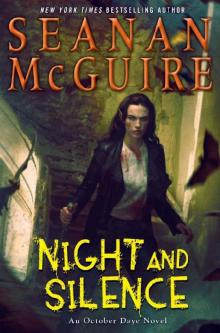 Night and Silence
Night and Silence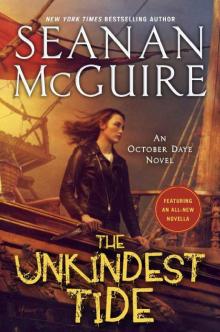 The Unkindest Tide (October Daye)
The Unkindest Tide (October Daye)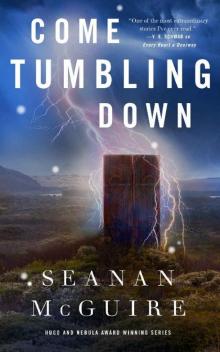 Come Tumbling Down (Wayward Children)
Come Tumbling Down (Wayward Children)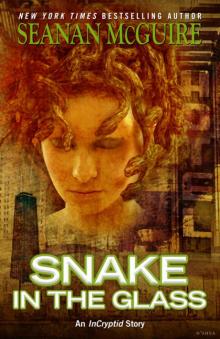 Snake in the Glass
Snake in the Glass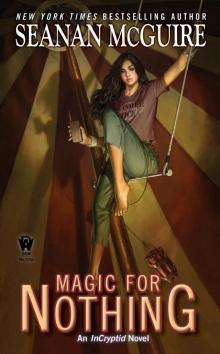 Magic for Nothing
Magic for Nothing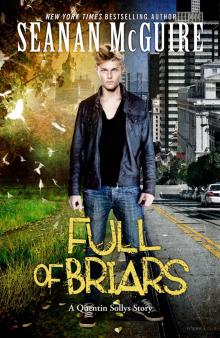 Full of Briars
Full of Briars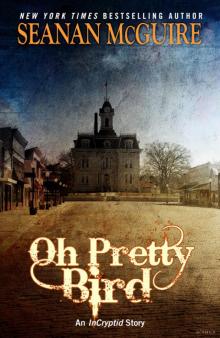 Oh Pretty Bird
Oh Pretty Bird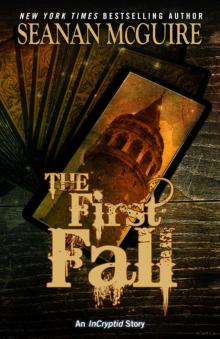 The First Fall
The First Fall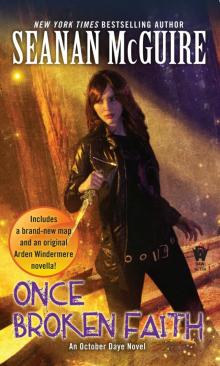 Once Broken Faith
Once Broken Faith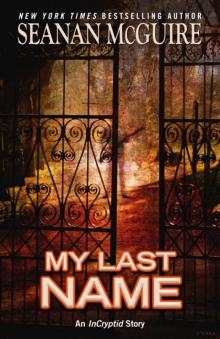 My Last Name
My Last Name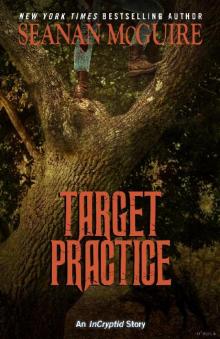 Target Practice
Target Practice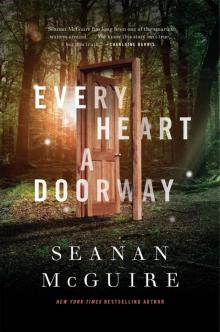 Wayward Children 01 - Every Heart a Doorway
Wayward Children 01 - Every Heart a Doorway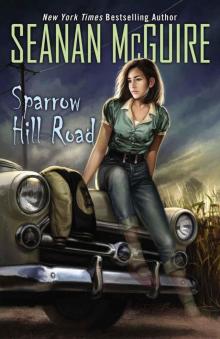 Sparrow Hill Road
Sparrow Hill Road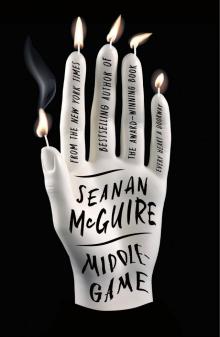 Middlegame
Middlegame Juice Like Wounds
Juice Like Wounds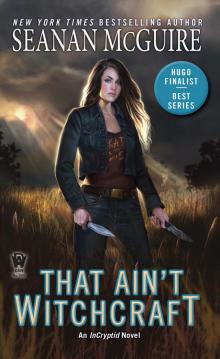 That Ain't Witchcraft
That Ain't Witchcraft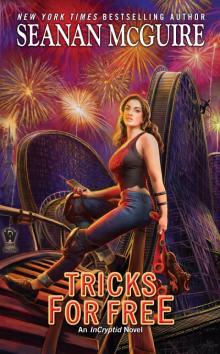 Tricks for Free
Tricks for Free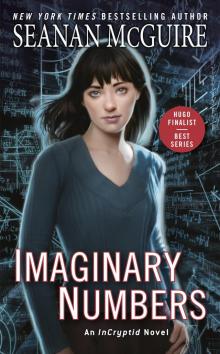 Imaginary Numbers
Imaginary Numbers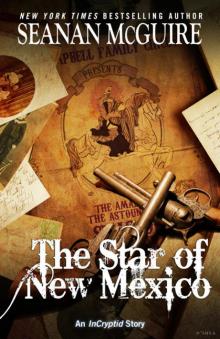 The Star of New Mexico
The Star of New Mexico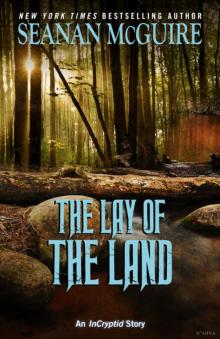 Lay of the Land
Lay of the Land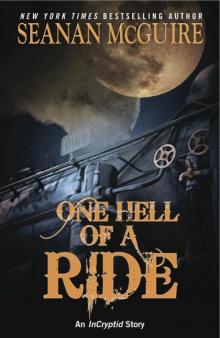 One Hell of a Ride
One Hell of a Ride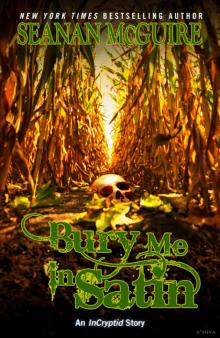 Bury Me in Satin
Bury Me in Satin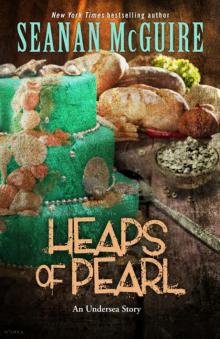 Heaps of Pearl
Heaps of Pearl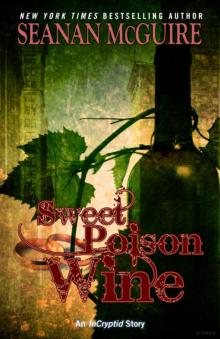 Sweet Poison Wine
Sweet Poison Wine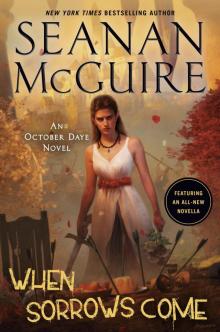 When Sorrows Come
When Sorrows Come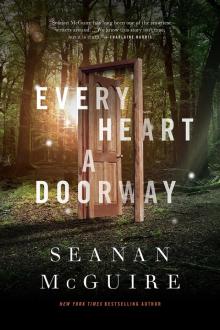 Every Heart a Doorway
Every Heart a Doorway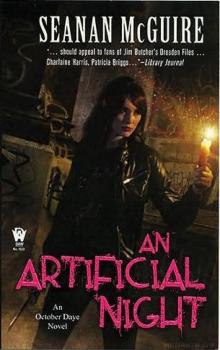 An Artificial Night - BK 3
An Artificial Night - BK 3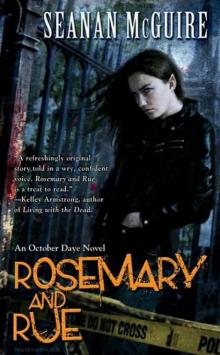 Rosemary and Rue
Rosemary and Rue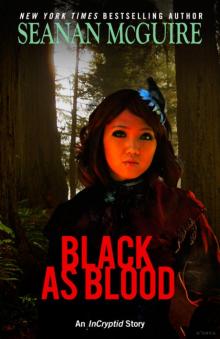 Black as Blood
Black as Blood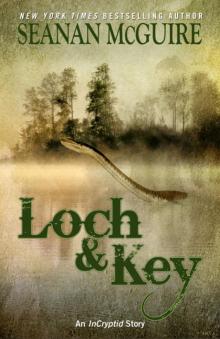 Loch and Key
Loch and Key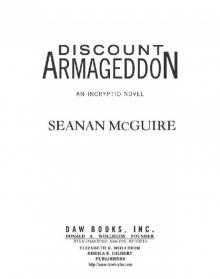 Discount Armageddon: An Incryptid Novel
Discount Armageddon: An Incryptid Novel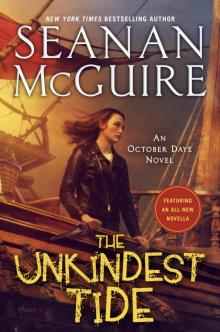 The Unkindest Tide
The Unkindest Tide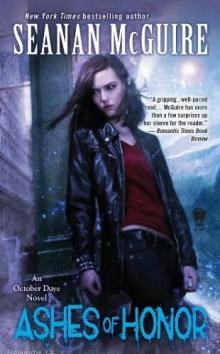 Ashes of Honor od-6
Ashes of Honor od-6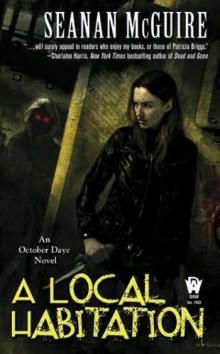 A Local Habitation od-2
A Local Habitation od-2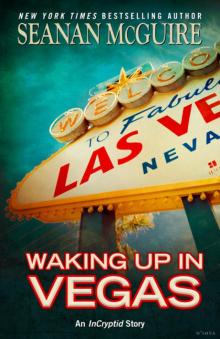 Waking Up in Vegas
Waking Up in Vegas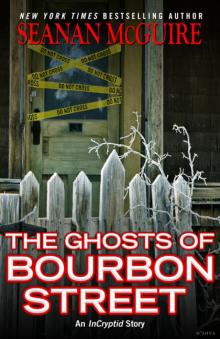 The Ghosts of Bourbon Street
The Ghosts of Bourbon Street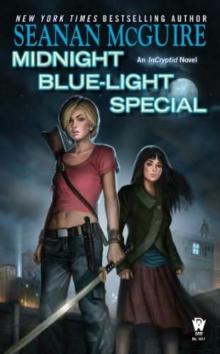 Midnight Blue-Light Special i-2
Midnight Blue-Light Special i-2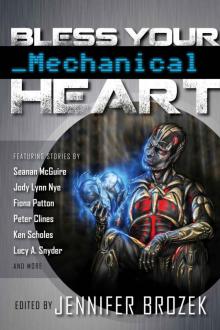 Bless Your Mechanical Heart
Bless Your Mechanical Heart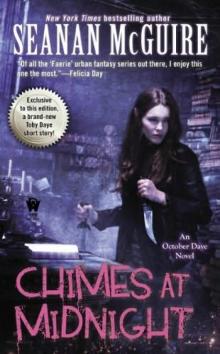 Chimes at Midnight od-7
Chimes at Midnight od-7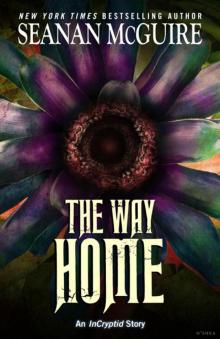 The Way Home
The Way Home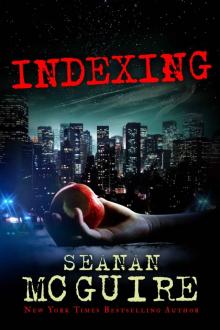 Indexing (Kindle Serial)
Indexing (Kindle Serial)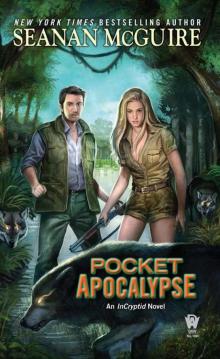 Pocket Apocalypse: InCryptid, Book Four
Pocket Apocalypse: InCryptid, Book Four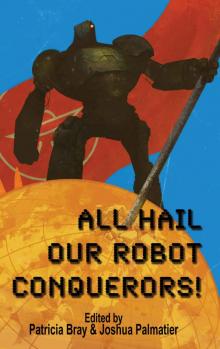 All Hail Our Robot Conquerors!
All Hail Our Robot Conquerors!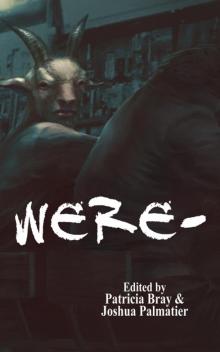 Were-
Were-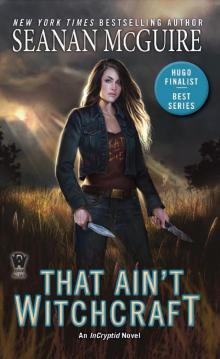 That Ain't Witchcraft (InCryptid #8)
That Ain't Witchcraft (InCryptid #8)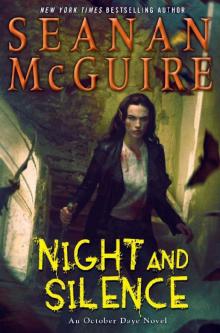 Night and Silence (October Daye)
Night and Silence (October Daye)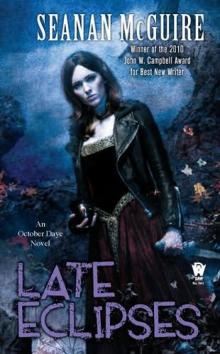 Late Eclipses od-4
Late Eclipses od-4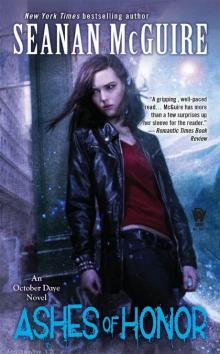 Ashes of Honor: An October Daye Novel
Ashes of Honor: An October Daye Novel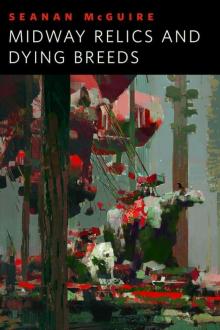 Midway Relics and Dying Breeds: A Tor.Com Original
Midway Relics and Dying Breeds: A Tor.Com Original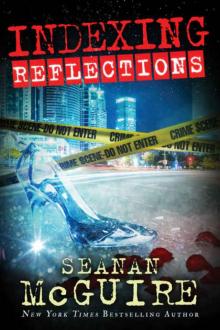 Indexing: Reflections (Kindle Serials) (Indexing Series Book 2)
Indexing: Reflections (Kindle Serials) (Indexing Series Book 2)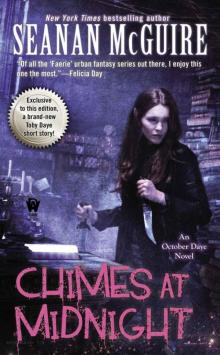 Chimes at Midnight: An October Daye Novel
Chimes at Midnight: An October Daye Novel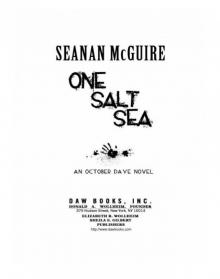 One Salt Sea: An October Daye Novel
One Salt Sea: An October Daye Novel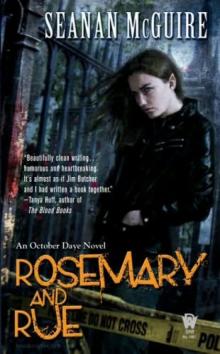 Rosemary and Rue od-1
Rosemary and Rue od-1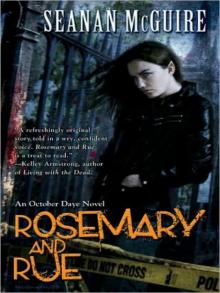 Rosemary and Rue: An October Daye Novel
Rosemary and Rue: An October Daye Novel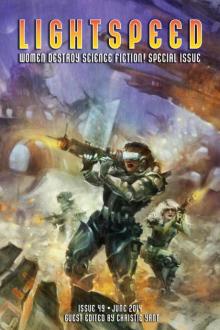 Lightspeed Magazine Issue 49
Lightspeed Magazine Issue 49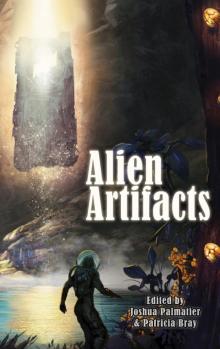 Alien Artifacts
Alien Artifacts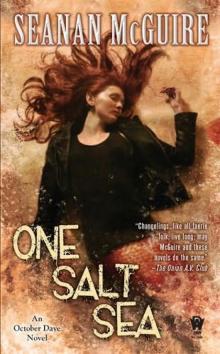 One Salt Sea od-5
One Salt Sea od-5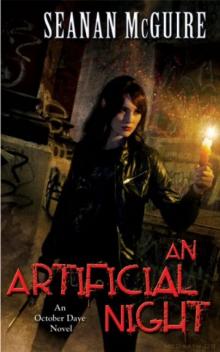 An Artificial Night od-3
An Artificial Night od-3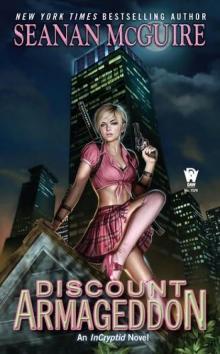 Discount Armageddon i-1
Discount Armageddon i-1